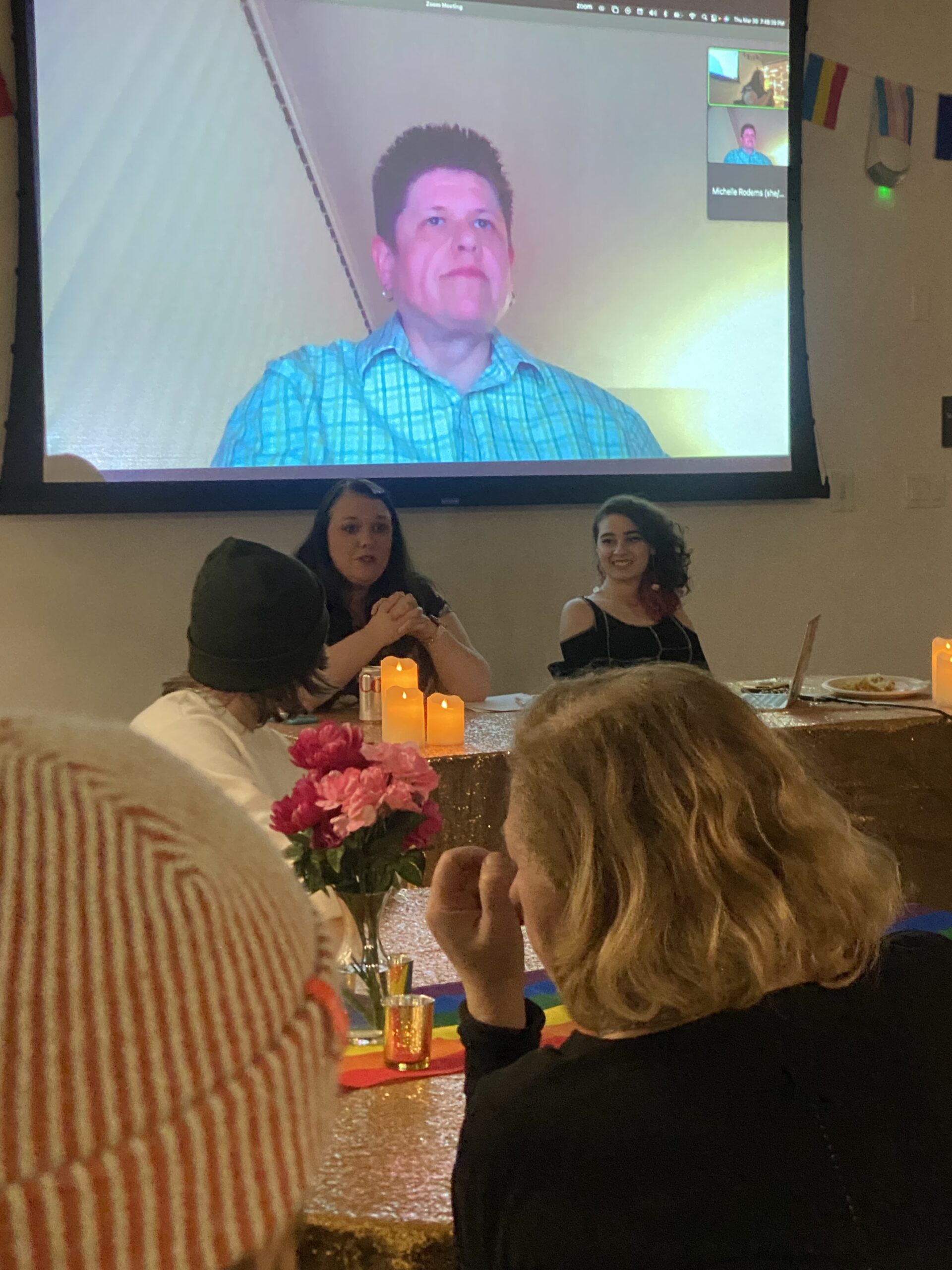The GSC’s annual symposium discussed how separate identities make up a person. PHOTO CREDIT: Lauren Drapeau | Contributing Reporter
The Gender and Sexuality Center (GSC) held its 28th Annual Symposium last week for the University of Rhode Island community to attend, inviting Kacee Ferrell-Snyder from the Women’s Center at Bowling Green State University in Ohio to speak about current challenges faced by their own inclusive centers.
The theme of this year’s symposium was “Critical Intersections Advocating from the Margins,” pertaining to the separate identities that make up each individual and how they connect uniquely to explain one’s life.
According to Annie Russell, the director of the GSC, the Gender and Sexuality Symposium is the longest-standing diversity event that exists at URI. While the content itself has remained consistent throughout the years, it initially began as a grassroots effort by faculty and staff to bring awareness to gender and sexuality issues on campus.
At the time of the GSC Symposium this year, the American Civil Liberties Union (ACLU) was tracking 449 anti-LGBTQIA+ bills around the country that may possibly affect their community in addition to the recent overturn of Roe v. Wade.
“Because of all these things that have been happening that are targeted attacks, we feel like, on women’s lives, we wanted women to be a special focus this year,” Russell said.
Ferrell-Snyder was chosen as the keynote speaker, offering the narrative of women’s center directors across the country that face many policy challenges while trying to offer inclusive resources. With the abundance of bills entering Ohio’s legislative system, Ferrell-Snyder often faces complaints from the Department of Civil Rights in her university upon any mention of topics like abortion or Planned Parenthood.
After being denied funds for public menstrual products, she began placing them in the women’s bathrooms with her own budget. The inclusive centers at Bowling Green State University are constrained by funding, as any unapproved measures to offer resources could result in a loss of total funds.
The difference in inclusion resources in Ohio, Ferrell-Snyder said, depicts a larger issue in America of women’s rights struggles, as well as the legislative discrimination against the LGBTQIA+ community. She currently attempts to work through partnerships in her community to meet the needs of marginalized populations on campus.
“I’m assuming you’re not in a position to donate money, so donate time,” Ferrell-Snyder said, encouraging students to assist in advocating for support of these inclusive centers at URI.
Russell expressed that women are the largest marginalized group on campus as they are working to provide more resources, hence the focus on women’s rights in this year’s Symposium events.
“I think the most important outcome for us is that there’s a sense of community that’s created, that people find a sense of belonging in our spaces and on campus,” Russell said.The GSC’s Symposium events are open to everyone on campus, regardless of identity. Students can support the center through their social media, as well as through volunteer opportunities that can be found on their website. Anybody can contact the center at (401) 874-2894.

